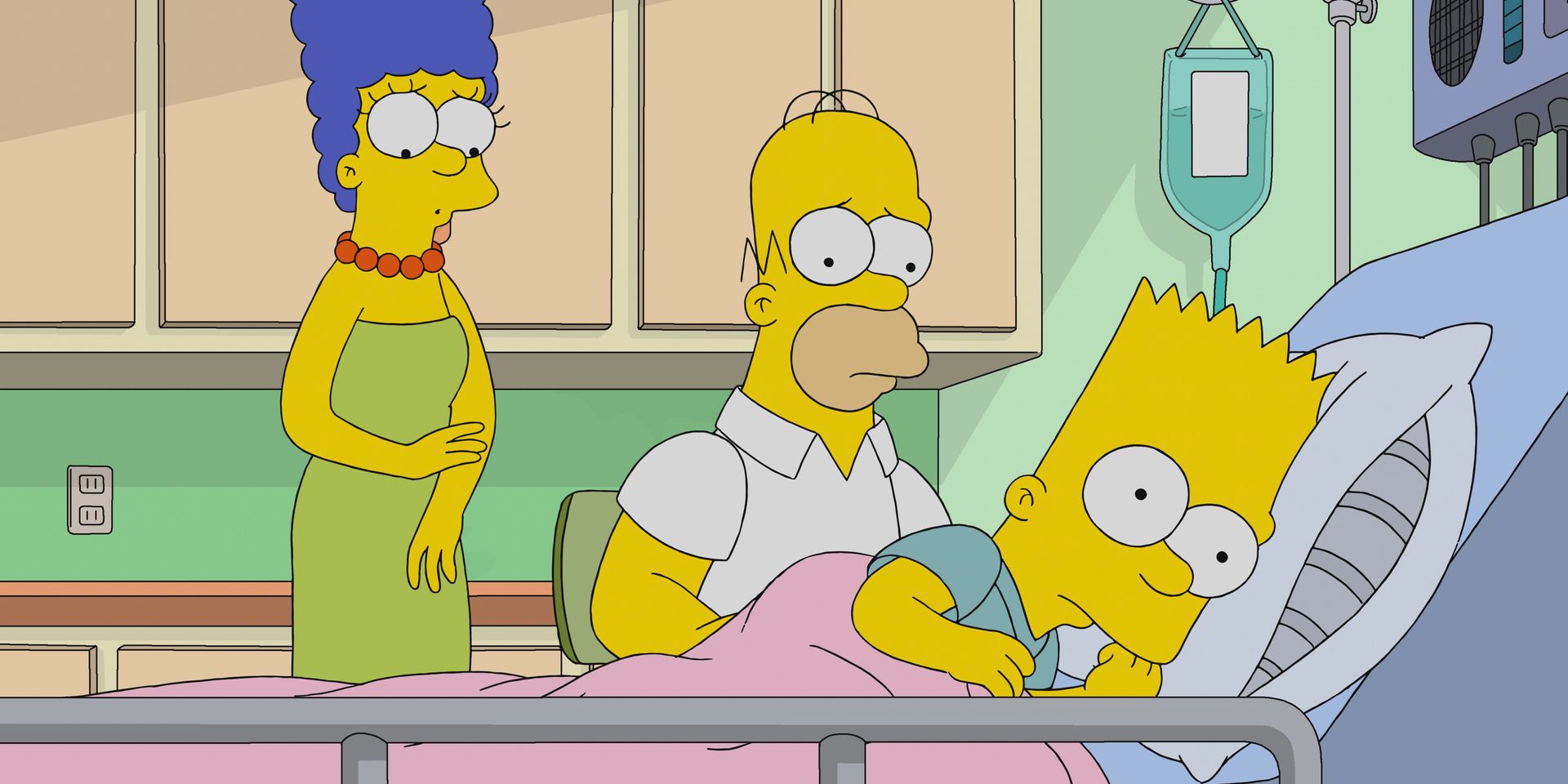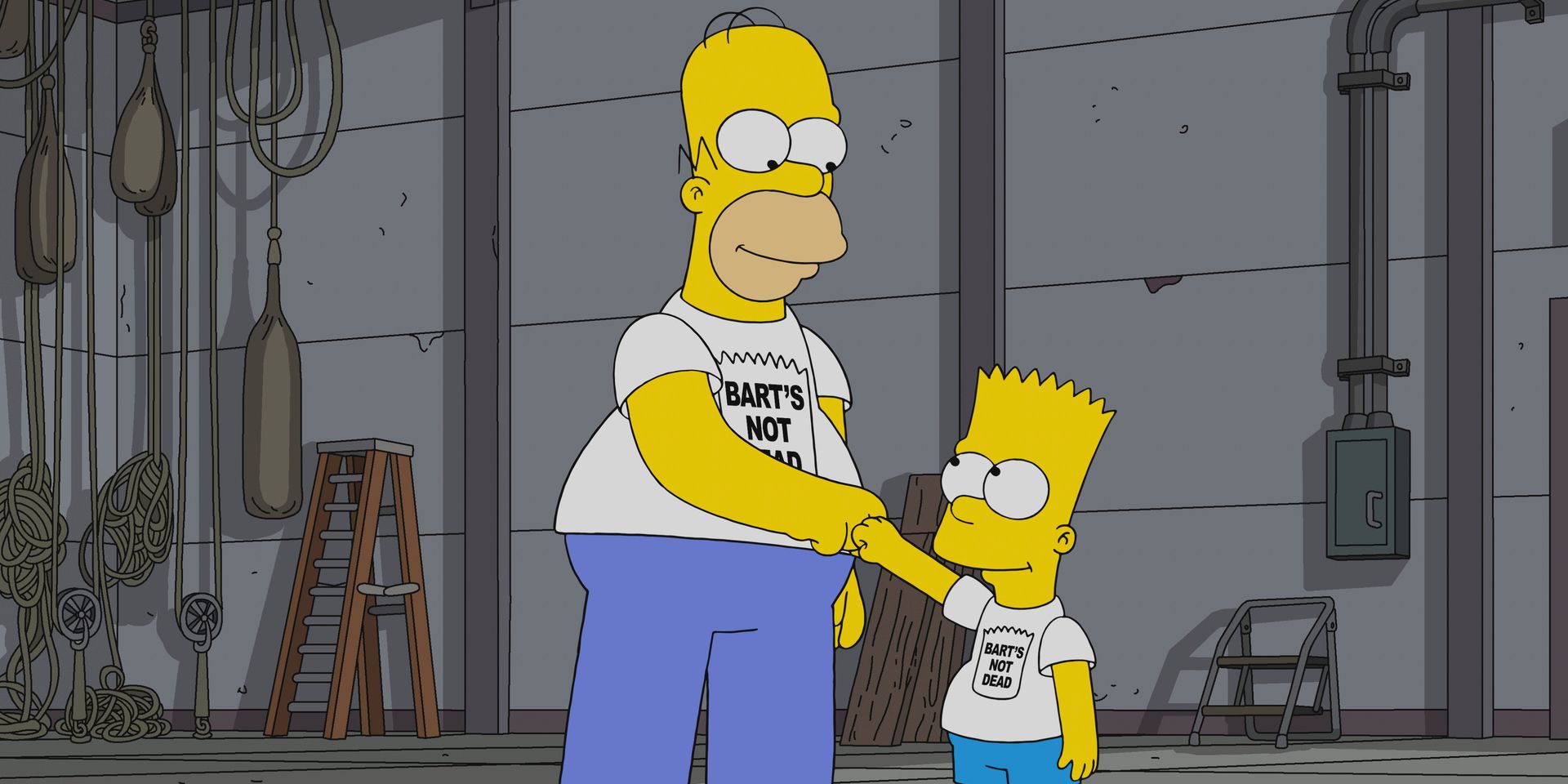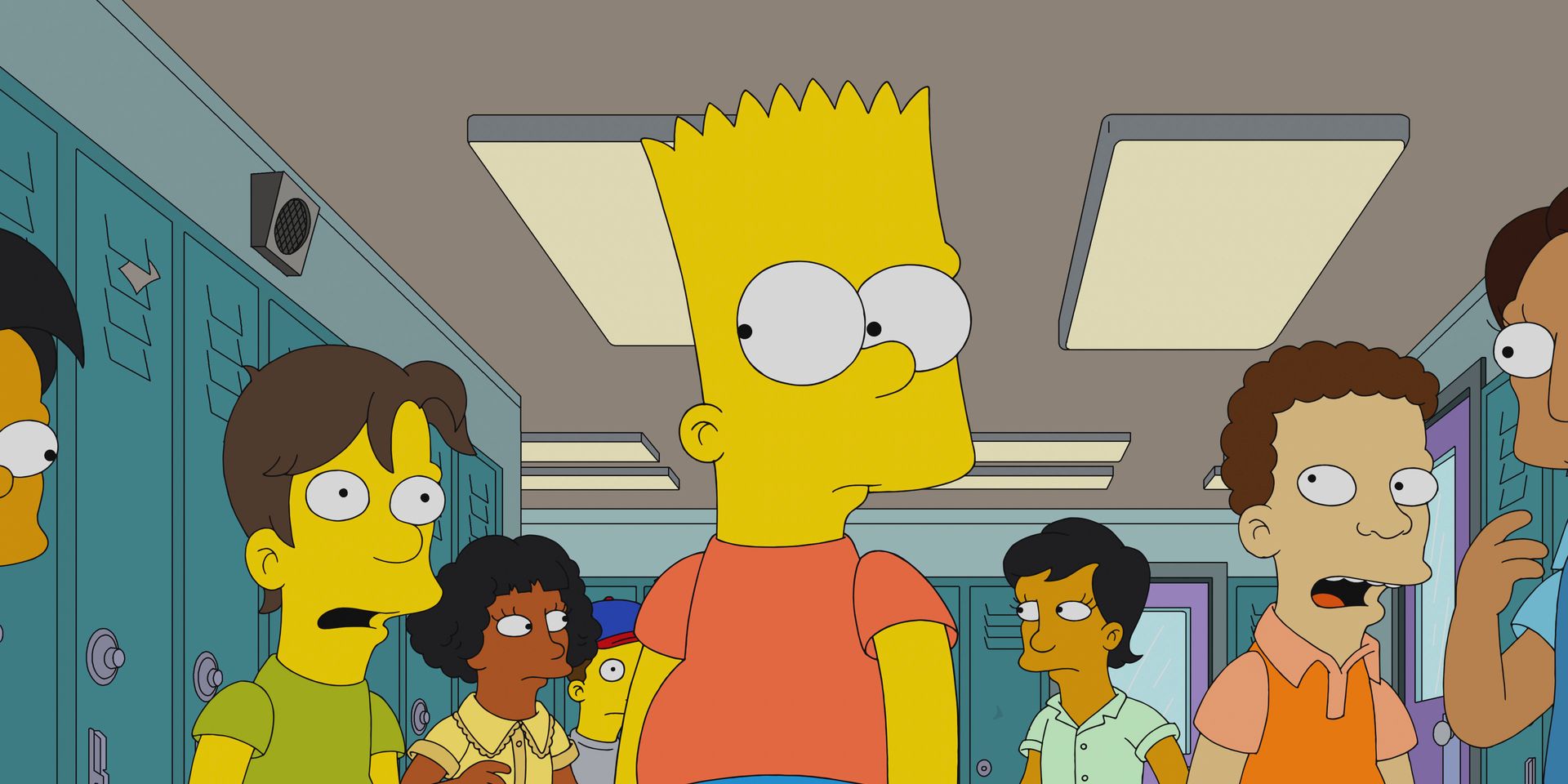At the start of its 30th season, The Simpsons celebrates by either consciously or unconsciously attempting to recapture the essence of the show’s genius earlier seasons. With ‘Bart’s Not Dead,’ the series puts away (mostly) its recent crutch of non sequiturs, and especially the unnecessary flights of fancy, as seen in the unimpressive season 29 medieval Simpsons premiere, to tell a story most definitely in the show’s wheelhouse, and one that also allows its writers to take aim at one of their most frequent targets. The combination, then, mixes an exploration of the snowballing consequences of a child’s wildly unbelievable lie with a rather biting criticism of organized religion and, in particular, Christian films. There’s also a brief voice cameo by Gal Gadot, which will be of some importance to people who care about such things, but her appearance holds little importance in terms of the overall story.
Instead, ‘Bart’s Not Dead’ is something of a throwback episode, a classic (ish) Bart and Homer story where some half-assed under parenting leads to some literally death-defying childhood antics that are then followed up with a lie so big even Bart begins to crumble under its immense weight. The episode begins with Bart making the rare right decision not to pull the fire alarm during Lisa’s saxophone performance at the school talent show. The idea wasn’t Bart’s, however; it was Jimbo and Kearney, who laid down a dare that Bart refused, thereby bringing such misguided masculine shame upon the Simpson name that Homer is forced to take action. The lesson: a dare can never be refused.
More: The Cool Kids Series Premiere Review: Getting Old Stinks, But It Can Still Be Funny
There’s a brief, funny joke involving Grampa Simpson and the dare he took that, had he refused, would have irrevocably changed the course of television history. But Homer’s concern over his child refusing a dare becomes the strangely relatable catalyst for an episode that starts small but gets bigger and bigger in some funny and unbelievable ways, many of which are noteworthy for the fact that they flow (mostly) logically from a single source, rather than bounce around to accommodate the jokes, whether they make sense within the context of the story or a particular scene or not.
The Simpsons hasn’t been particularly interested in that kind of layered writing for, well, decades now, so it’s something of a treat to see the series make a go of it for the season 30 premiere. ‘Bart’s Not Dead’ begins simply enough, with that familiar sense things could go in any direction. As such, it’s something of a surprise to find, after a quick father-son discussion about the importance of always taking a dare, Bart is perched atop a dam, ready to jump, the school’s bullies egging him on. Bart’s leap, the skin-peeling speed of his descent, and the abrupt, bone-crunching end to his free fall make for a satisfyingly jarring few seconds that make the viewer question exactly what’s meant by the episode’s title.
The rest of the episode unfolds nicely, if a little unevenly, from there. Bart is compelled to tell a lie about his near-death experience to protect his father. It’s a strange moment where narrative necessity overpowers character consistency and Bart opts to claim he went to heaven and met Jesus, rather than explain he jumped because Homer told him never to refuse a dare. The decision tracks just enough — of course Bart would find greater joy in pulling the wool over everyone’s eyes than in seeing his father excoriated once again for his half-assed under parenting — that it’s easy to go along for the ride.
That ride essentially becomes a prolonged slight against movies like ‘God’s Not Dead’ and ‘Heaven Is For Real’, one that, for some reason or another, includes a brief cameo by Gal Gadot, who is auditioning for Homer and Ned Flanders for a part in the film. The Simpsons has been flooded with this sort of unimaginative celebrity cameo for years now, and Gadot’s is no less uninspired. An actor auditioning for a role in a movie isn’t particularly inventive, even if the scenario is meant to be outrageous. Mostly it just seems an excuse for The Simpsons to a) advertise Wonder Woman’s appearance in the premiere and b) find out what would happen if Homer had an entirely inconsequential run-in with another famous person.
Nevertheless, ‘Bart’s Not Dead’ is at its best when it is pointing out both the ridiculousness of Bart’s lie (which it does through imagined meetings with religious figures and flash forwards to the afterlife) and through those foolish enough to cling to the outrageous claims of the town’s second least reliable resident. This puts characters like Flanders and Reverend Lovejoy on blast, along with their core belief system, but even though The Simpsons takes great pleasure in pointing out the hypocrisy of making religious films for profit, the episode ends on an unexpectedly bipartisan note, with Bart having learned a lesson about lying and Lisa allowing (ever so slightly) for the possibility of some benevolent being in the sky. The end result is the thirtieth time The Simpsons has begun a new season, and though it’s not perfect, it does feel refreshingly reminiscent of the series’ better days.
Next: The Good Place Season 3 Review: Still One Of The Most Inventive Comedies On TV
The Simpsons continues next Sunday with ‘Heartbreak Hotel’ @8pm on FOX.



